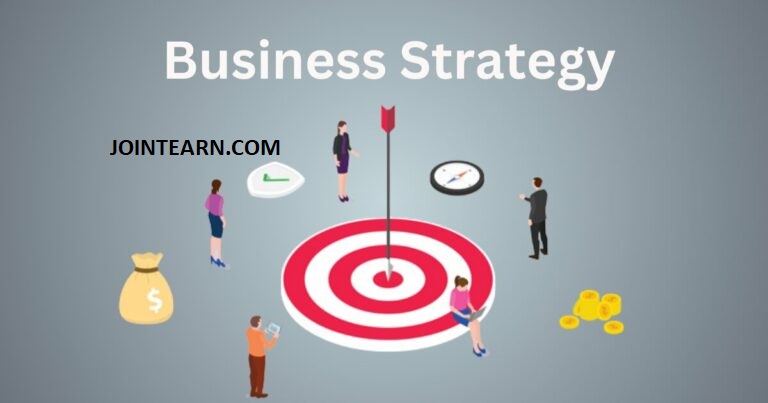In today’s rapidly evolving business landscape, companies are increasingly recognizing that long-term success depends not only on financial performance but also on their ability to adopt sustainable business practices. Sustainable business strategies are becoming essential for organizations that aim to secure their future while addressing growing environmental and social concerns. The shift toward sustainability is no longer just a trend, but a core principle that defines resilient and forward-thinking businesses.
A sustainable business strategy focuses on creating value in a way that balances economic, environmental, and social considerations. It goes beyond the traditional pursuit of profit to include the well-being of people and the planet. For businesses, adopting such a strategy is no longer optional—it’s a necessity for survival and growth in an increasingly conscientious market.
1. Embracing Environmental Responsibility
The first pillar of a sustainable business strategy is environmental stewardship. Companies must recognize their impact on the planet and take concrete steps to minimize their carbon footprint. This can be achieved by adopting green technologies, optimizing energy use, reducing waste, and sourcing materials sustainably.
For instance, businesses can shift to renewable energy sources, implement energy-efficient processes, or invest in circular economy models that encourage recycling and reuse. As climate change becomes an urgent global issue, consumers, investors, and regulators are pushing for companies to demonstrate responsibility in reducing their environmental impact.
By adopting these practices, businesses not only contribute to the well-being of the planet but also gain a competitive edge. Sustainable products and services are increasingly in demand, with consumers showing a preference for brands that align with their environmental values. Moreover, sustainable operations often result in cost savings, especially in energy consumption and waste management, leading to improved profitability in the long term.
2. Social Responsibility and Ethical Practices
Sustainability isn’t just about environmental impact; it also encompasses social responsibility. Modern consumers and employees are placing increasing importance on a company’s ethical standards and its role in society. Businesses that prioritize social issues such as fair labor practices, diversity and inclusion, and community engagement often enjoy stronger brand loyalty and better employee satisfaction.
A sustainable business model should foster a positive corporate culture that encourages inclusivity and fair treatment. Companies that invest in their employees’ development and well-being are more likely to attract and retain top talent. Moreover, businesses that engage with and support local communities through initiatives such as charitable giving or volunteering contribute to social well-being while building a strong reputation.
Ethical sourcing is also a critical component of social responsibility. Companies should ensure that their supply chains are free from exploitation, child labor, and human rights violations. Transparency and traceability within the supply chain not only improve the business’s reputation but also ensure that it operates in line with the growing consumer demand for ethical products.
3. Economic Sustainability and Long-Term Profitability
Economic sustainability goes hand-in-hand with environmental and social responsibility. For businesses to thrive long-term, they must focus on strategies that generate consistent profits while maintaining ethical practices and minimizing environmental harm. This requires a shift from short-term financial goals to long-term strategic thinking.
Investing in innovation and diversification is crucial for ensuring long-term profitability. Businesses that continuously adapt to market changes and technological advancements are more likely to maintain a competitive advantage. For instance, investing in digital transformation or new product development helps companies remain relevant in an increasingly digital world.
Moreover, fostering a strong relationship with stakeholders—including employees, customers, and investors—is vital for long-term financial success. Transparent communication about a company’s sustainability efforts can enhance trust and loyalty, leading to a more solid customer base and stronger investor confidence.
4. Integrating Sustainability into Company Culture
A successful sustainable strategy must be deeply embedded in the company’s culture. Top-down commitment from leadership is essential, but it is equally important to foster a shared sense of purpose across all levels of the organization. Sustainability should be part of the decision-making process, and employees should be encouraged to contribute ideas that promote environmental and social well-being.
Leaders should ensure that sustainability goals are clearly defined, measurable, and tied to the company’s broader objectives. Performance metrics related to sustainability—such as reducing carbon emissions, enhancing diversity, or improving employee satisfaction—should be integrated into business performance evaluations. Regularly tracking and reporting on sustainability initiatives demonstrates accountability and allows businesses to adjust strategies as needed.
5. Adapting to Changing Consumer Demands
One of the driving forces behind the shift toward sustainable business practices is the changing expectations of consumers. Today’s consumers are more conscious about the environmental and social impacts of the products they purchase. They are increasingly favoring brands that align with their values, especially when it comes to sustainability.
Businesses must listen to these evolving consumer demands and adapt accordingly. Whether it’s through offering eco-friendly products, adopting more ethical marketing practices, or reducing packaging waste, companies that stay attuned to these shifts are better positioned to build customer loyalty and increase market share.
Conclusion
Sustainability is not a passing trend but a long-term strategy that ensures business resilience in an ever-changing world. By adopting environmentally responsible practices, committing to social responsibility, and focusing on economic sustainability, companies can secure their future and thrive in the global marketplace.
For businesses aiming for long-term success, the key lies in integrating sustainability into their core operations, culture, and strategies. This will not only help protect the planet and society but also create lasting value for the organization, employees, customers, and investors alike. With the right sustainable business strategies in place, companies can build a legacy of success that benefits both people and the planet.












